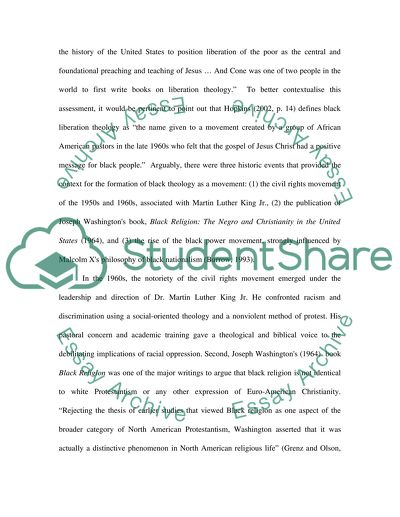Cite this document
(“Black Theology Essay Example | Topics and Well Written Essays - 3000 words”, n.d.)
Retrieved from https://studentshare.org/miscellaneous/1521777-black-theology
Retrieved from https://studentshare.org/miscellaneous/1521777-black-theology
(Black Theology Essay Example | Topics and Well Written Essays - 3000 Words)
https://studentshare.org/miscellaneous/1521777-black-theology.
https://studentshare.org/miscellaneous/1521777-black-theology.
“Black Theology Essay Example | Topics and Well Written Essays - 3000 Words”, n.d. https://studentshare.org/miscellaneous/1521777-black-theology.


